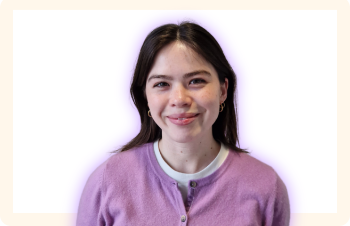It’s time for our Spotlight Series blog post once again! Creative Access Chair and Executive Chair of Faber Books, Stephen Page OBE talks to our Marketing Assistant Larah Yearwood about all things publishing and Creative Access…
You began your career in bookselling, how did you get into that?
I grew up near Birmingham and I actually never thought of working with books or in publishing. I didn’t read very much, and I was very content with playing catch with my brother and playing the drums in my band. I then went to Bristol to study History but truly in my mind, my future was coming back home to the band and then going to London and becoming rockstars. Fortunately, that didn’t happen. So, to pay the rent I got a job in a bookshop with my twin brother, and at that time (1987) I wrote to all the major bookshops during a period of expansion. Essentially, I got a job in publishing to support my errant desire to be a rockstar. I quickly realised I loved the book world in a way that rock and roll hadn’t proved to quite as enjoyable as I imagined.
Playing music for me is like a wordless version of reading literature.
You moved to Faber in 2001, why was this the company for you?
When I was a bookseller, I began my self-education in reading, and it just turned out that so many of the books I was reading were published by Faber & Faber. I grew up in a house of music. My dad was a teacher, but his real love was classical music and putting on concerts and my mum’s love was reading – so there were plenty of books in the house. Alongside Penguin Books, Faber was very present, so it became an identity for me.
Faber then went through an extraordinary period in the 1980s where the double F was born and there were iconic book covers that were born with black and white backgrounds with small images and were highly branded. Because of this Faber was imitated by other publishers. So, I had quite a branded version of publishing in my head, but Faber carried the writers I absolutely love, such as Seamus Heaney, Milan Kundera, and Lorrie Moore. They were writers that made me feel like a reader, like an adult. I did also work at an independent start-up called Fourth Estate and I loved working in the independent sector. But when the chance of working for Faber came about, I knew I had to take it.
I’m always motivated by making things work and Creative Access works.

If you could name your favourite book or author, who or what would it be?
It changes with the seasons for me! I’m passionate about 19th-century books and I love Russian writers such as Leo Tolstoy and Anton Chekov along with novels by Charles Dickens. Bleak House is for me one of the greatest books ever written in my opinion. One of the things I really love about the publishing industry today is that there are so many strong up-and-coming writers. I just read a wonderful novel by Claire Louise Bennett, and it’s called Checkout 19 and I was as excited about that novel as I am reading Chekov, to be honest.
What were your motivations for joining the Creative Access board back in 2020?
When I came into publishing, coming from the Midlands, it felt very counterculture. A lot of publishing was very Oxford/Cambridge and south of England. So, given that over the last 20 years publishing had been trying to make itself more for everybody, I felt rather uncomfortable – as a middle-class white man – knowing that the industry didn’t appear to be for everyone.
Our staffing was looking homogenous, and questions about what was being published and why, were being asked. The sad truth is that without Creative Access we made very little headway as an industry in creating change. It was with Creative Access, while I was at Faber, that we found a partner with who we could really make a palpable change and find wonderful cohorts of potential employees to bring through on internships.
The sad truth is that without Creative Access we made very little headway as an industry in creating change
So, I wanted to support Josie and Creative Access and their brilliant team in any way I could. It wasn’t just about publishing, it was about managing to give a really practical partner to the whole of the creative industries, all of which have the same problem, that there’s too much expectation that people will be willing to work for not very much money for quite a long time and people coming from particular university backgrounds. I wanted to do more than I could do at Faber, and I just really admire what Josie and her team achieve.
If I can bring some of the things I’ve learned, help grow the organisation, and chair it while speaking up on behalf of the issues that Creative Access represents, then it would be a very proud thing for me. It’s fantastic work and it’s not about me, it’s about creating positive change. Last summer the BLM protests really highlighted the upset and hurt over the lack of change my generation of leaders had made. If we leave the creative industries anywhere near the approximation of what they are it would be a total failure and that felt truly awful.
What Creative Access has been able to achieve has been extraordinary.
What’s next for you as Chair for Creative Access?
As Chair, it’s a supporting role and a role to give the Creative Access team confidence to have the maximum impact and that’s what the board is about, to give Creative Access the backing to really be ambitious about making change. What Creative Access has been able to achieve has been extraordinary for quite a small-scale organisation. I think we’re in the foothills of this change and if we can build Creative Access to become an even more impactful organisation, the industries themselves will have a partner they can transform themselves with more quickly. That’s what I’m after. I’m always motivated by making things work and Creative Access works.
Final question, what do you love doing when you’re not reading?
Playing the drums! During the pandemic, one of the things I really missed during lockdown was playing music with other people. I also decided to learn something new, and I love Jazz, so I decided to learn how to play the drums with brushes. There are limits to me being a musician. I’m not terrible but I’m not brilliant. Playing music for me is like a wordless version of reading literature. It’s a way of experiencing the mysteries and wonders of life. The language of music is the language I grew up with really.
You can follow Stephen on Twitter here.




